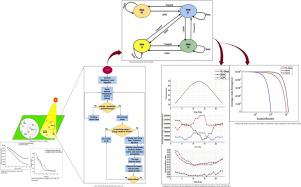Sustainable Computing: Informatics and Systems ( IF 3.8 ) Pub Date : 2020-02-20 , DOI: 10.1016/j.suscom.2020.100380 Partha Sarathi Banerjee , Satyendra Nath Mandal , Debashis De , Biswajit Maiti

|
Temperature variations have a significant effect on the sustainable operation of the power-constrained wireless sensor networks. The characteristics of wireless communication links deteriorates considerably with increase of temperature. Proactive measures may not always perform well in a dynamic environment where both the wireless links and sensor nodes are supposed to behave unexpectedly. Environment adaptive efficient sleep-schedule strategy can preserve the resources of the low power sensor nodes and thereby alleviate the adverse effects of temperature. In this paper, temperature adaptive intelligent sleep-scheduling strategy (RL-Sleep) for the wireless sensor nodes has been proposed. This algorithm is based on Reinforcement Learning which enables a node in the network to perceive the environment and decide autonomously about the action (transmit, listen or sleep) conducive for a stable operation of the network. Simulation results exhibit a good performance of the proposed approach in terms of sustainable operations of the network and connectivity.
中文翻译:

RL-Sleep:使用强化学习的温度自适应睡眠调度,用于无线传感器网络中的可持续连接
温度变化对受功率限制的无线传感器网络的可持续运行具有重大影响。无线通信链路的特性随着温度的升高而大大恶化。在动态环境中,无线链路和传感器节点都应具有异常行为,因此主动措施可能无法始终发挥良好的作用。环境自适应的高效睡眠计划策略可以保留低功率传感器节点的资源,从而减轻温度的不利影响。本文提出了一种针对无线传感器节点的温度自适应智能睡眠调度策略(RL-Sleep)。此算法基于增强学习,该学习使网络中的节点能够感知环境并自主决定有利于网络稳定运行的操作(传输,监听或睡眠)。仿真结果显示了该方法在网络和连接的可持续运行方面的良好性能。











































 京公网安备 11010802027423号
京公网安备 11010802027423号